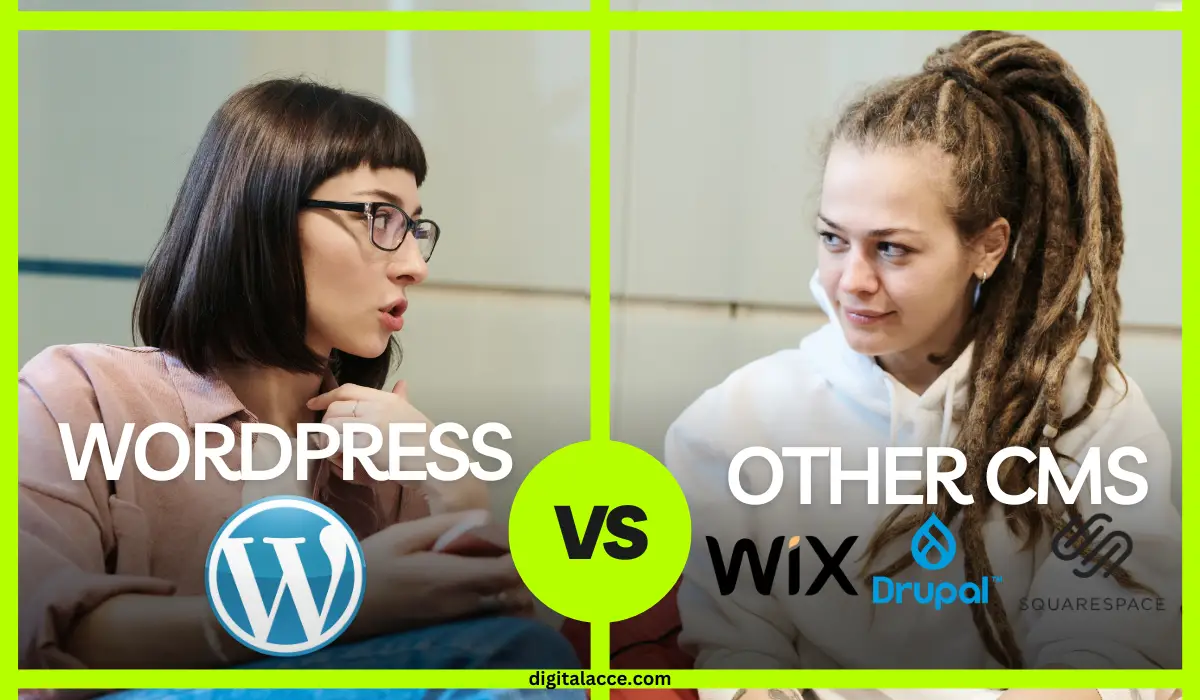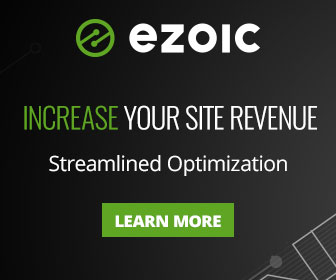You may be familiar with WordPress but you do not know why it is the best CMS. In this post, you’ll find out just that.
In today’s digital age, having a website is a necessity for any business or individual looking to establish a strong online presence.
Among the various content management systems available, WordPress stands out as the premier choice for building a website that is both functional and visually stunning.
With its ease of use, endless customization possibilities, and vast support community, WordPress is the ultimate tool for creating a website that truly represents you or your brand.
However, before going further, let’s understand what CMS means.
Contents
What Is CMS?
CMS stands for Content Management System. It is a software application that allows users to create, manage, and publish digital content without advanced technical knowledge. It is often used to create and maintain websites and blogs.
Broad Categories or Types Of CMS
There are many categories of Content Management Systems as highlighted below:
- Web-based CMS: These are CMS systems that are accessed through a web browser and hosted on a remote server. Examples include WordPress, Joomla, and Drupal.
- Self-hosted CMS: These are CMS systems that are installed on the user’s own server and require the user to handle their own hosting and maintenance. Examples include Contao and MODx.
- Cloud-based CMS: These are CMS systems that are hosted on a cloud server and accessed via the internet. Examples include Adobe Experience Manager and Acquia.
- Headless CMS: These are back-end-only systems that provide an API that front-end developers can use to create custom user interfaces.
- E-commerce CMS: These are specifically designed for e-commerce websites and provide features for managing products, orders, and customers. Examples include Magento, Shopify, and BigCommerce.
- Enterprise CMS: These are designed for large organizations and corporations to manage content and digital assets across multiple departments, channels, and languages. Examples include Adobe Experience Manager, Sitecore, and Episerver.
But for the purpose of this topic, we’ll focus on just web-based CMS.
Types of Web-based CMS
Web-based CMS are CMS systems that are accessed through a web browser and hosted on a remote server. Some examples of web-based CMS include:
- WordPress: The most popular web-based CMS, known for its ease of use, wide range of themes and plugins, and large support community.
- Joomla: A web-based CMS that is known for its flexibility and powerful content management features.
- Drupal: An open-source web-based CMS with a large community of developers and users, known for its scalability and security features.
- Wix: A web-based CMS with drag and drop website builder, great for small business and personal websites.
- Squarespace: A web-based CMS with a focus on design and simplicity.
- Weebly: A web-based CMS that provides a user-friendly interface for building websites, great for small businesses and personal use.
- Shopify: A web-based e-commerce CMS that allows users to create and manage an online store.
Now, let’s highlight one after another the unique reasons why WordPress is the best web-based CMS.
10 Reasons Why WordPress Is The Best CMS
Although there are several CMS as highlighted above, WordPress stands out to be the best. The following points below explain why WordPress is the best CMS.
1. Customizable and Flexible
WordPress offers a wide range of themes and plugins. This allows users to easily customize their website to meet their specific needs and design preferences.
The level of WordPress customization is not always possible with other CMS. Hence, making WordPress more versatile and adaptable to different types of websites.
However, you need to ensure the safety of these plugins and themes.
2. Large Community
WordPress has a large and active community of users and developers, providing users with a wealth of resources and support.
This community can help users troubleshoot issues, find solutions, and stay up-to-date with the latest developments in WordPress.
Other CMS have smaller communities which means less support and resources available.
3. Extensive plugin and theme library
WordPress has a vast library of free and paid plugins and themes. Users can add to the functionality and design elements to their websites.
This makes it easier to achieve specific features without needing to know how to code. Other CMS’s do not have the same level of options available.
4. Search Engine Optimization
WordPress is optimized for search engines, which makes it easier for websites to rank higher in search engine results pages.
This is especially beneficial for businesses and individuals looking to increase their online visibility.
In comparison, other CMSs may not be as search engine friendly, making it harder to rank high on search engines.
5. Regular updates
WordPress is constantly being updated to ensure security and improve the user experience.
The platform is also backward compatible which means users can update their website and still keep their existing customization and plugins.
Other CMSs may not have the same level of dedication to updates and backward compatibility.
6. Multi-language support
WordPress has built-in support for creating multilingual websites, which makes it unique compared to other CMS.
It has plugins such as WPML (WordPress Multi-Language) which makes it easy to create and manage multilingual content within the same website. It also allows users to create different versions of a page or post in different languages.
Also, this automatically detects the user’s language and redirects them to the appropriate version of the website.
Other CMS do not have this feature and when it is, it’s not as easy to use and manage as it is in WordPress.
Additionally, WordPress also has built-in support for RTL languages which makes it easy to create websites in languages that are written from right to left like Arabic or Hebrew.
This gives it a significant advantage over other CMS that do not have this feature.
7. Mobile-responsive design
WordPress is unique compared to other CMS in terms of mobile-responsive design because of the way themes are built.
WordPress themes are designed to be mobile-responsive, which means they automatically adjust to different screen sizes.
This ensures that websites look great and are easy to navigate on any device.
Furthermore, this feature is built-in into WordPress, which means that all themes are mobile-responsive by default unless the theme is specified otherwise.
Other CMSs do not have it the same way because mobile responsiveness is not always built-in. Moreover, it requires additional work to make sure the website is mobile-friendly.
8. E-commerce integration
WordPress has a number of e-commerce plugins, such as WooCommerce, which allow users to easily create and manage an online store.
These plugins are user-friendly and provide a wide range of features such as inventory management, payment gateway integration, shipping options, and more.
This makes it a great option for businesses and individuals looking to sell products or services online.
WordPress also allows users to easily integrate their online store with other tools like email marketing platforms, accounting software, and more, which makes it more convenient to manage.
Other CMSs such as Shopify, Magento, and BigCommerce are mainly dedicated to e-commerce and are more limited in terms of flexibility and customization. WordPress, on the other hand, provides more flexibility and customization options for e-commerce integration.
9. Access control
WordPress has built-in access control features that allow users to assign different roles and permissions to different users.
This means that website administrators can assign different levels of access to different users, such as editors, authors, and contributors.
For example, an editor can be given the ability to publish and manage posts, while an author can only create and edit their own posts.
This makes it easy to manage a team of editors and contributors on a website.
Other CMSs may have similar features, but they may not be as user-friendly and easy to manage as WordPress.
Additionally, WordPress also has a wide range of plugins that can help to manage access control in more complex sites. For example, giving specific access to certain pages or sections of a website.
10. Cost-effective
WordPress is open-source software, which means it is free to use and distribute. This means that users do not have to pay any license fees to use WordPress, which can save a significant amount of money in the long run.
Additionally, WordPress has a large community of users and developers who have created a wide range of free themes and plugins, which can be used to add functionality and design to a website at no cost.
Other CMSs such as Shopify, Magento, and BigCommerce are paid solutions and require subscription fees to use the software, and also charge transaction fees on each sale made through the platform.
Additionally, WordPress is also easy to host on your own server or a low-cost hosting service, which can save money in the long run as well.
This makes it a cost-effective option for individuals and small businesses looking to create a website.
Conclusion
All in all, WordPress is a highly popular and widely used content management system that offers a number of unique features that make it stand out among other CMSs.
From its user-friendly interface and mobile-responsive design to its e-commerce integration and cost-effectiveness, WordPress is a powerful tool that can help businesses and individuals create a professional and functional website.
Whether you’re looking to start an online store, manage a team of editors and contributors, or simply build a website on a budget, WordPress is an excellent option that is sure to meet your needs.
Finally, you may want to find out the difference between a website and a blog, or a blog post and a column. Also, learn unique ways to monetize your website.



